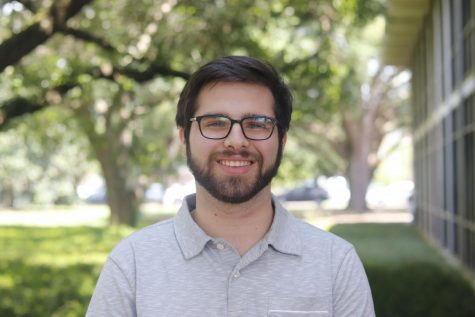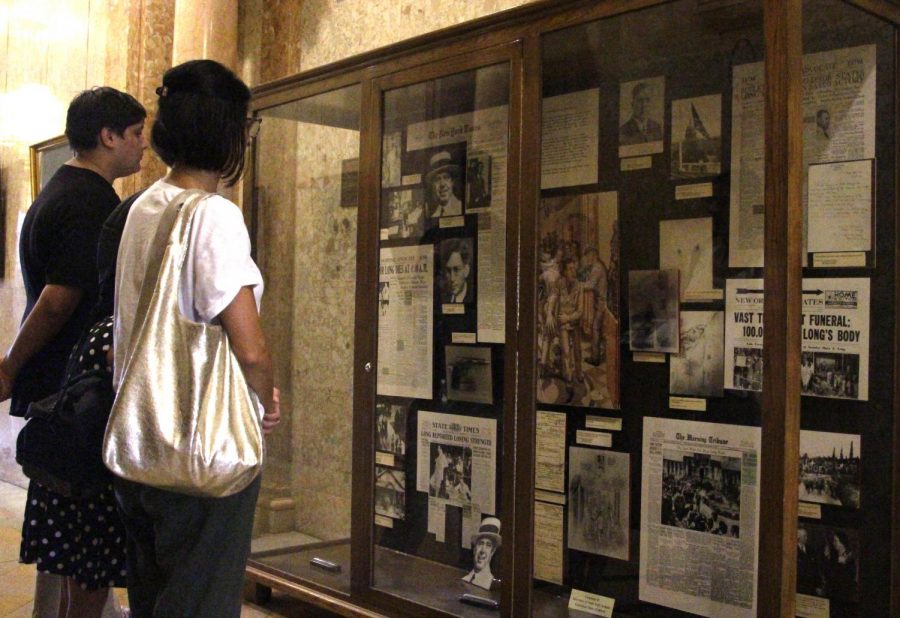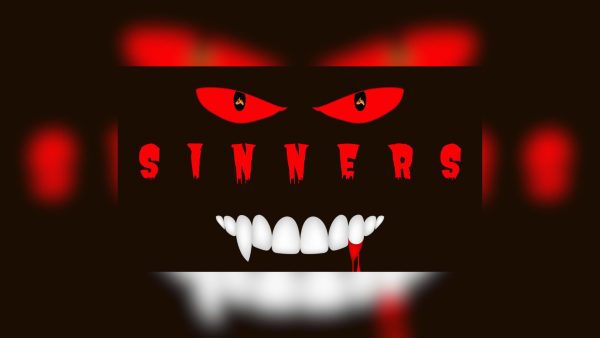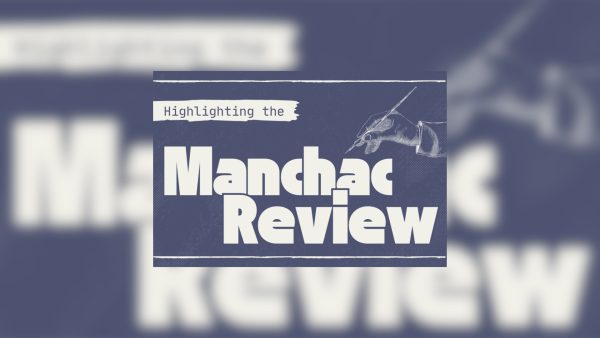This month in Louisiana History: Huey Long assassination
Dylan Meche/The Lion’s Roar
Visitors to the State Capital can view newspaper clippings documenting the assassination of former governor and US Senator Huey Long. Long was killed in the capital building on September 8, 1935 by Dr. Carl Weiss.
Several decades after his death, Huey Long, former governor and US senator, continues to be one of the most well-known figures in Louisiana’s history.
One of the most famous events surrounding Huey Long is his mysterious assassination.
On Sept. 8, 1935 former Louisiana governor Long was allegedly shot by Dr. Carl Weiss at the State Capitol Building in Baton Rouge during a special session of the state legislature. Two days later on Sept. 10, Long died.
Keith Finley, history professor and assistant director at the Center for Southeast Louisiana Studies, explained the events that lead up to the assassination.
“Huey Long was a United States senator at the time of his assassination but he still controlled Louisiana politics from Washington through his handpicked successor, Governor Oscar Allen,” shared Finley. “Long contacted Oscar Allen the month he died, September of 1935, and requested that he held a special session to get certain things accomplished. Oscar Allen did whatever Huey Long said. So, he agreed to hold the session.”
During the special session of Congress, Long was at the capitol advocating for specific pieces of legislation. One of the bills that he wanted to get passed was a bill targeting one of Long’s many political opponents: Judge Benjamin Pavy. Finley described that historians believe this legislation ties into the motives of Long’s alleged assassin.
“Long was obsessed with trying to destroy the careers of people who disagreed with him,” explained Finley. “One person who was a consistent opponent to him was Benjamin Pavy. Pavy was opposed to Long’s policies for basically his entire career. Long wanted to essentially gerrymander his judicial district so he would not get reelected. This is the best explanation that historians have as to why Dr. Carl Weiss, who was Pavy’s son in law, decided to confront Long in the capitol.”
Weiss was at the State Capitol on Sept. 8, planning to confront Senator Long. Finley said that the events that transpired during the assassination are the subject of much debate between historians.
“There are some historians that hold Carl Weiss never had a weapon and planned to punch Huey Long,” described Finley. “Long’s bodyguards claimed that Weiss had a gun and shot Long in the stomach and that is when they opened fire at Weiss, killing him instantly. This all unfolded fairly quickly in the hallway. Some have even speculated that the bodyguards may have inadvertently shot at Huey Long. There is a lot of debate and dissension about what happened, but we will never truly know for sure what really happened.”
Long survived the initial attack and was able to get away. He was quickly taken to the hospital where after emergency surgery was performed, he was believed to be okay. However, they failed to stop internal bleeding near his kidney which ultimately led to his death two days later on Sept. 10, 1935.
Immediately after Long’s death, the public began to suspect that there was more to the story than they were being told.
“To a lot of people, this was a great conspiracy,” explained Finley. “His millions of ardent supporters both in Louisiana and around the nation believed that he was killed because of his ideas. A lot of cheap publications were written alleging that President Franklin Roosevelt or other state leaders were behind his death.”
Finley feels that the assassination of Long is important to look back because it can serve as a lesson about the consequences of divisive politics.
“An assassination of a famous political figure can oftentimes overshadow their accomplishments,” said Finley. “However, with someone like Huey Long, who created so many bitter political enemies, it is always good for people to step back and to realize that the ultimate consequence for divisive politics is violent actions. When you have a political climate that is so black and white, people oftentimes do stupid things. Despite all of this, Long’s legacy is all around us, and it is important for students to realize how much this man changed our state.”
Your donation will support The Lion's Roar student journalists at Southeastern Louisiana University.
In addition, your contribution will allow us to cover our annual website hosting costs.
No gift is too small.

Dylan Meche is a Political Science major from Baton Rouge and serves as Opinions Editor. He has been a reporter for The Lion's Roar since August of 2019....





